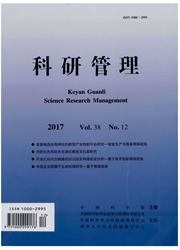

 中文摘要:
中文摘要:
现有逆向创新相关研究大多关注制造业,对工程技术服务企业的研究鲜有涉及。本文对三家后发工程技术服务企业案例展开扎根分析,得到以下研究发现:一是识别了技术地方化能力、国际联接能力、“服务链”治理能力及组织学习能力等逆向创新成功的关键因素。二是归纳了在逆向创新过程中关键因素的若干演变规律,包括“本土”技术地方化向“国际”技术地方化演进、“被动、局部”国际联接向“全面”国际联接演进、“适应性”学习向“前沿性”演进以及工程技术“服务链”渐进提升。本研究拓展了“技术地方化”的内涵,即除了“本土地方化”活动还包括“国际地方化”活动;提出工程技术“服务链”这一概念,并分析了该服务链的构成及构建规律。
 英文摘要:
英文摘要:
Most of the existing researches on reverse innovation mainly focus on manufacturing, but reverse innovation on engineering and technical service enterprises have not been well investigated. Some significant results have been found through grounded analysis of three cases of latecomer engineering and technical service enterprises. Firstly, key success factors are identified, including localized technological capacity, international connection capacity, governing services links capacity and organizational learning capacity. Secondly, evolution and regulations of key factors are concluded, such as evolution from "indigenous technology localization" to "international technology localization", "partial and passive international connections" to "comprehensive international connections", "adaptive learning" to "leading edge learning" as well as gradual improvement of engineering "services links". This paper extends the connotation of localized technological capacities. In addition to "indigenous technology localization activities", " international technology localization activities" should be included. This paper defines the concept of "services links", and analyzes the construction of service links and their construction rules.
 同期刊论文项目
同期刊论文项目
 同项目期刊论文
同项目期刊论文
 期刊信息
期刊信息
